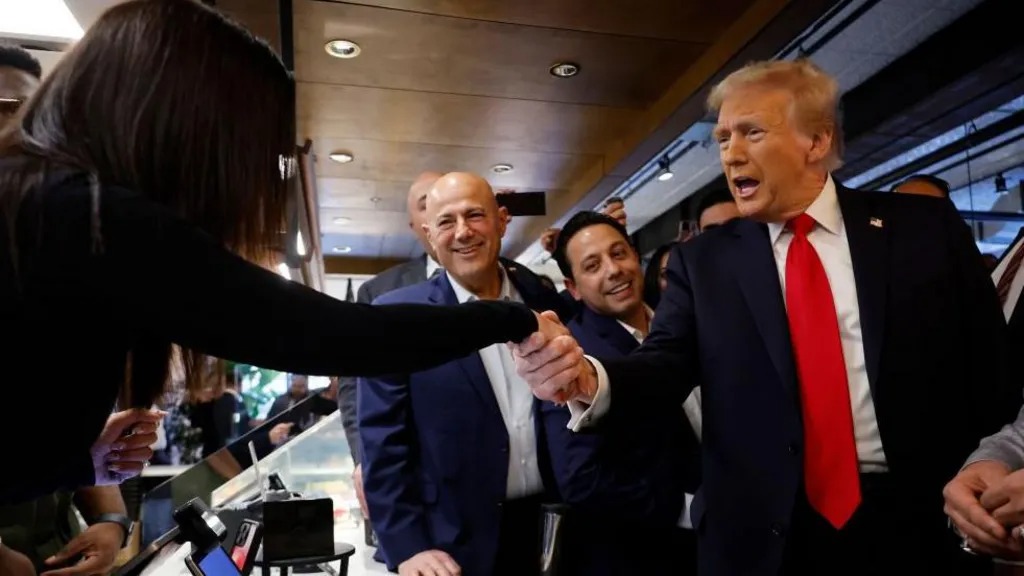
Trump’s Strategy to Win Arab-American Support in Michigan
In Dearborn, Michigan, Donald Trump recently met with a group of Arab-American business leaders, rallying for support in the Arab-majority city. Addressing the topic of Middle Eastern peace, he presented his campaign as a “pro-peace” choice, a stance that has generated both support and skepticism within the community. For Trump, Michigan represents a must-win state with over 200,000 Arab-American residents, many of whom are weighing their options amid ongoing Middle East tensions.
Why Arab-American Voters in Michigan Matter
The Arab-American population, especially in areas like Dearborn and Detroit, has shown a complex range of voting preferences. Dearborn, a city traditionally aligned with Democratic values, reveals divided sentiments in the 2024 race. These voters are crucial in a state where election outcomes have historically been tight. Notably, Hillary Clinton lost Michigan by a mere 10,000 votes in 2016, whereas Biden reclaimed it with a 150,000-vote margin in 2020.
Discover more about the importance of Arab-American voters on BBC.
Trump’s Appeal to Arab-American Leaders
The Trump campaign has gained momentum with endorsements from Dearborn Heights and Hamtramck mayors, signaling a growing appeal among certain Arab-American factions. His portrayal of Harris as pro-Israel has resonated with voters disillusioned by current administration policies on the Middle East. However, others, like Dearborn Mayor Abdullah Hammoud, declined to meet with Trump, highlighting the continued division.
Harris’s Position and Challenges in Dearborn
Harris’s campaign is balancing its outreach to the Muslim community with a broader focus on moderate voters. Her campaign manager, Nasrina Bargzie, has emphasized her dedication to “uniting all Americans” and supporting diverse Muslim communities across the nation. However, some Michigan voters feel her approach lacks empathy toward Gaza and Lebanese struggles. This perceived imbalance has cost Harris support among young and minority voters.
Divided Views on Trump and Middle East Policies
For many in Michigan’s Arab-American community, the Middle East conflict influences their voting decisions. Activists like Abbas Alawieh, leader of the Uncommitted movement, see Trump’s Middle East stance as opportunistic, but acknowledge that frustrations with Harris’s pro-Israel stance are growing. Leaders within the community, such as Rexhinaldo Nazarko of the American Muslim Engagement Network, are advising voters to consider alternative candidates or sit out the election in protest.
This sentiment is echoed by individuals like Wael Alzayat, CEO of Emgage, who caution that a third-party vote could inadvertently aid Trump’s campaign. Within the Hamtramck Bangladeshi Muslim community, Harris maintains significant support, yet Yemeni Muslims in the area reportedly lean towards a 50-50 split between Trump and Harris.
The Influence of Arab-American Voters on the Michigan Election
As election day approaches, both Trump and Harris face challenges in securing Michigan’s Arab-American vote. While Trump’s “pro-peace” stance appeals to those frustrated with current foreign policies, Harris’s strategy rests on emphasizing inclusivity and rejecting divisive narratives. The Michigan Arab-American vote is far from uniform, revealing the depth of political nuance within this community. It remains uncertain whether this segment will solidify behind Harris, pivot to Trump, or signal their discontent through alternative voting.
Arab-American voters in Michigan are making their voices heard, impacting a race that could come down to a narrow margin. Each campaign will need to consider these voices, as Michigan’s electoral significance grows with every passing day.





